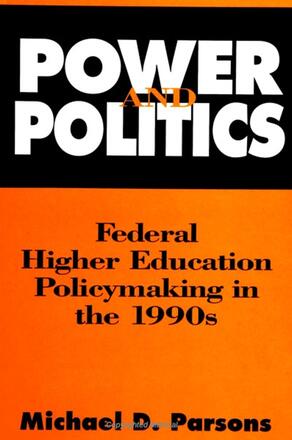
Power and Politics
Federal Higher Education Policymaking in the 1990s
Alternative formats available from:
Provides the most intimate view of federal higher education policymaking since Congress and the Colleges. Reveals that, despite the lack of power as measured by conventional standards, higher education associations have succeeded in convincing Congress to dramatically expand the scope of federal student aid programs under the 1992 Higher Education Act.
Description
Power and Politics provides the most intimate view of federal higher education policymaking since Congress and the Colleges. The question of power, often ignored by higher education policy analysts and researchers, is the focus of this study of federal higher education policymaking in the 1990s. Conventional measures and assessments of power reveal that the Washington-based higher education associations are not powerful policy actors. However, the associations apparently have succeeded in convincing Congress to dramatically expand the scope and size of federal student aid programs authorized under the Higher Education Act (HEA). The 1992 HEA reauthorization and the Clinton student aid agenda provide case studies as the author seeks to resolve the contradiction between conventional measures of power and actual policy outcomes in the federal higher education policy arena.
Michael D. Parsons is Associate Professor of Higher Education at Indiana University-Purdue University at Indianapolis and is Program Coordinator, Higher Education Program at Indiana University, Bloomington.
Reviews
"I am particularly impressed with the author's articulation of the concept of power. He does an effective job of tracing the literature, demonstrating how the concept of power has lost its viability as a tool for policy researchers, and, in his words, 'reconstructing and reclaiming power so that it can be used as an analytic tool and explanatory concept in policy analysis and research. ' I think his development of the concept of foundations of power (i. e., institutions and structures, personal and social relationships, and beliefs and values) provides policy analysts and scholars with a useful, and hitherto unavailable, tool for examining the development of policy in a wide range of arenas. By offering a clear definition of the foundations of power he has made an important contribution to the field of policy studies. " — Michael D. Coomes, Bowling Green State University